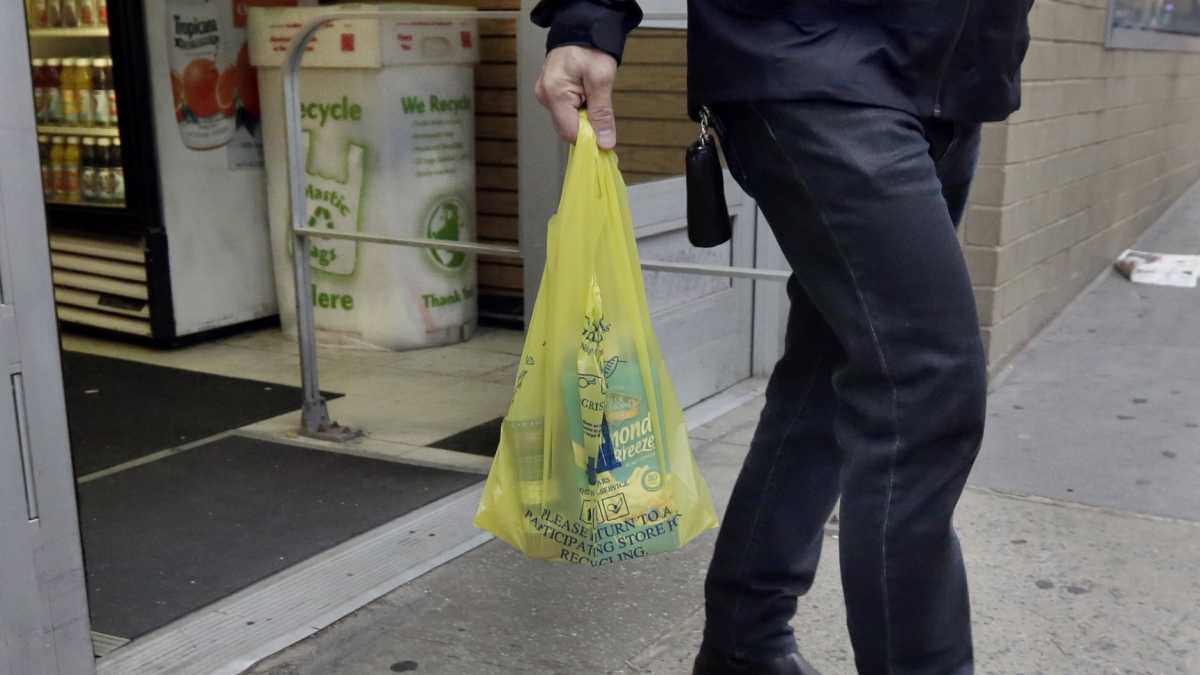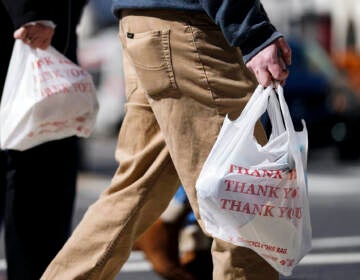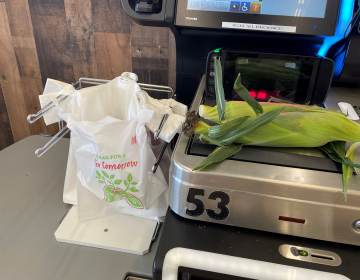Delaware lawmakers one step closer to curtailing use of plastic bags
Delaware’s House advances a partial ban on plastic bags to the state Senate. If the Senate passes the legislation, it would take effect in January 2021.

Delaware’s House advances a partial ban on plastic bags to the state Senate. If the Senate passes the legislation, it would take effect in January 2021. (Richard Drew/AP Photo)
Large retail stores in Delaware are required to have an onsite recycling receptacle so customers can dispose of their plastic bags responsibly.
But volunteers collected 1,946 plastic bags during the state’s annual Coastal Cleanup Day last year.
Moving to protect sea animals and wildlife from litter by reducing the use of plastic bags, Delaware’s House voted 33-7 to advance legislation limiting the availability of single-use plastic bags.
If the Senate passes the measure, it would take effect in January 2021.
The bill sponsored by state Rep. Gerald Brady, D-Wilmington, would ban plastic bags from stores with more than 7,000 square feet of retail space and chains with three or more locations with at least 3,000 square feet each.
The bill makes exceptions for bags used to wrap meat, fish, flowers or potted plants or those that contain unwrapped food items. Bags containing live animals, those that transport chemical pesticides or cover articles of clothing on a hanger also are exempt.
The legislation also does not prevent a city with more than 50,000 residents to enact a law requiring stores in excess of 500 square feet to comply with the ban
Plastic bag bans have been enacted in three other states, and several major cities also have similar laws.
During the debate Tuesday on the House floor, some legislators expressed concerns about the government issuing a mandate.
“I’d rather have a more carrot approach than a stick approach, whether the choice is to have plastic or paper vs. mandating what is going to be done,” said state Rep. Lyndon Yearick, R-Dover.
“I think it’s a regressive tax. These grocery stores work with razor-thin margins, and they’re going to pass that cost on to the consumer … this program is going to hurt individuals with the least the most — as a regressive tax does.”
Proponents including state Rep. John Kowalko, D-Newark, disagreed.
“These plastic bags end up at the deepest part of the ocean. Disintegrated plastic bags are fed and enjoyed by the plankton, but the plankton feels full, and it’s not nutritious, and they die off,” he said.
“What’s more expensive? Watching this planet die in front of our eyes? Regressive taxation, I don’t agree with that at all,” Kowalko said. “If we have to make a choice, we have to make that choice for the betterment of this planet.”
WHYY is your source for fact-based, in-depth journalism and information. As a nonprofit organization, we rely on financial support from readers like you. Please give today.




